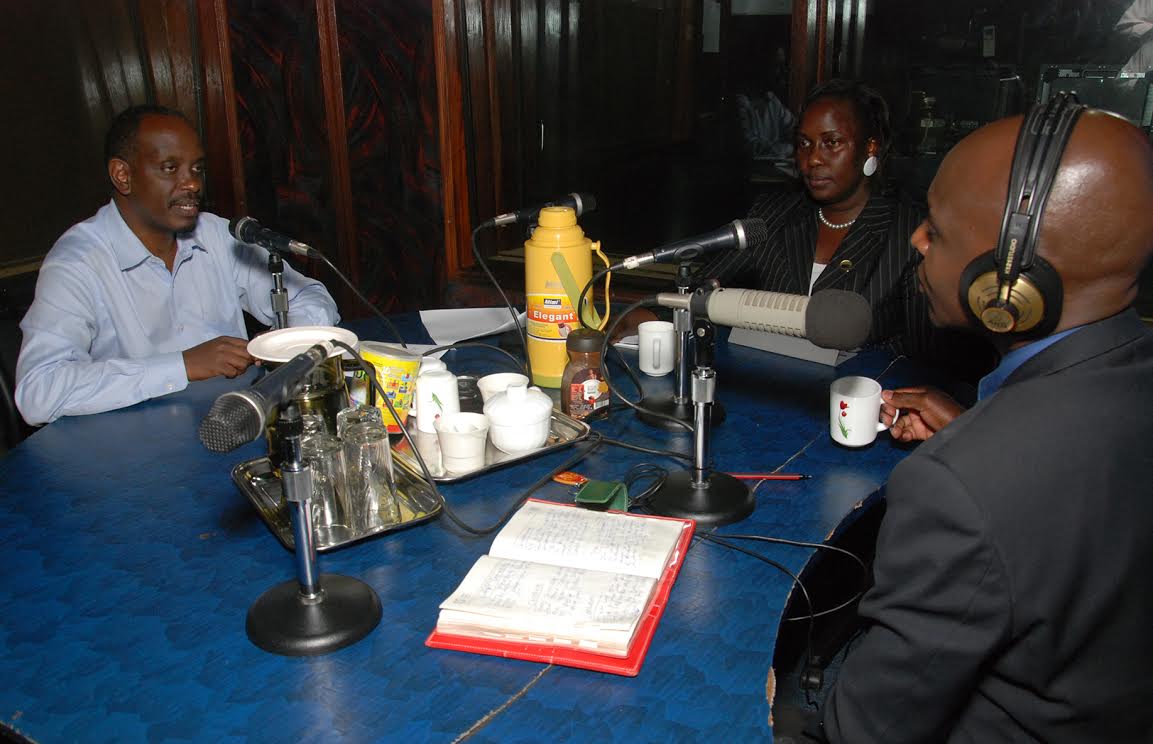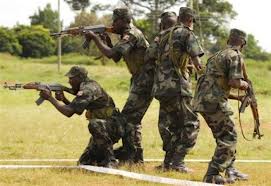East African governments have been asked to use elections to consolidate and celebrate democracy thus contribute to the reduction of violence.
Speaking in an interview with KFM, ahead of today’s polls in Tanzania, the East African Community (EAC) Secretary General Dr. Richard Sezibera has allayed fears of the possibility of violence as was the case in Burundi, saying the two countries have experienced different electoral situations.
Citing the violence that has marred the pre-election period in Uganda, Sezibera has called on all EAC partners to always ensure a peaceful environment during and after elections.
“We don’t think elections should be considered a terminal disease, we think elections should be a time for celebrating a democratic dispensation.It is incumbent upon all our partners state and all political actors to make sure that electoral periods are not periods of violence, and that’s the message we keep passing on to all our partners including Uganda,” he said.
Meanwhile, the people of Tanzania are asked to go to the polls today with a determination to maintain a tradition of peace and tolerance.
Speaking to KFM, Prof Yunus Mgaya, the Executive Secretary Tanzania Commission For Universities, has also urged his fellow citizens to turn to God during this critical moment and pray for total peace.
Tanzania’s ruling Chama Cha Mapinduzi faces its fiercest challenge ever as united opposition seeks to take over the reins.
An EAC Election Observer Mission led by former Kenyan Vice President Moody Awori was deployed earlier to promote democratic governance in line with the fundamental principles of the Community.
The election has pit CCM’s John Magufuli against Edward Lowasa of the opposition Ukawa Alliance.
But who exactly are these two men?
Edward Lowasa studied at the University of Dar-es-Salaam in the early 1970s before joining the miniltary academy at Mondoli, Arusha as a CCM political commissar in the armed forces.
He has dominated Tanzanian politics for the past 20 years, during which he has attempted to vie for the presidency on the CCM ticket several times.
He has been in politics since 1985 when he entered parliament on a special seat representing the CCM youth.
Mr. Lowasa has served in government in various ministerial positions but he particularly rose in 1994 when, as lands minister, he ordered the eviction of a Dar-es-salaam businessman from the Manzi Moja open grounds, which had been sold dubiously by the city council.
On the political front, Mr. Lowasa and President Jakaya Kikwete were good friends as members of the CCM youth wing.
In 1995, both sought the presidential candidacy but had their names withdrawn by Mwalimu Julius Nyerere on grounds that the lacked competency to head the country.
While on the other hand, CCM’s Dr. John Magufuli holds a PhD in Chemistry from the University of Dar-es-Salaam, a Master’s degree from Salford University in England and Bachelor’s degree in education, specializing in Chemistry & Mathematics from the University of Dar-es-Salaam.
Dr. Magufuli’s name did not feature prominently in the early stages of the CCM nomination of presidential candidates, until he was nominated as the ruling party’s flag bearer.
At the age of 36 he vied for parliament for the first time in 1995 for the Chato Constituency on a CCM ticket and won. He was then appointed deputy minister for infrastructure the same year by former president Benjamin Mkapa, a position he held until 2000.
Dr. Magufuli is credited with overseeing Tanzia’s biggest transport infrastructure development since independence.
Through his tenure however, Dr Maguguli has not publicly involved himself in party politics outside his constituency.
Analysts say Dr Magufuli was an ideal candidate for CCM because of his marketability based on his reputation as a “clean” politician with a proven track record as a minister. He also does not belong to any faction with a ruling party.
Story By Catherine Ageno








